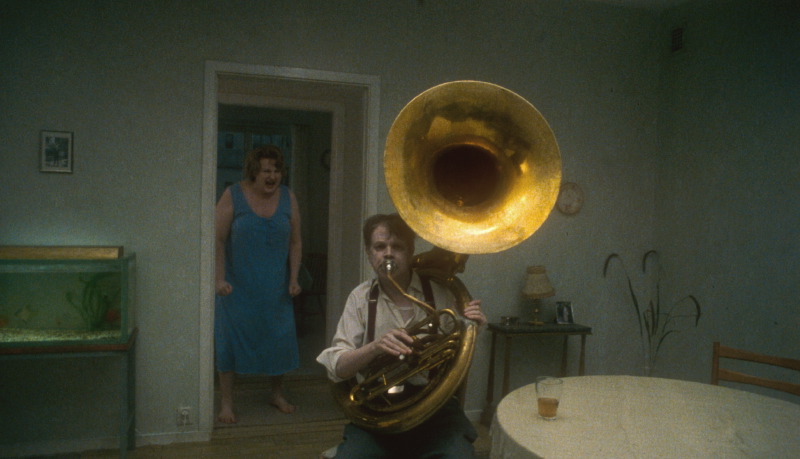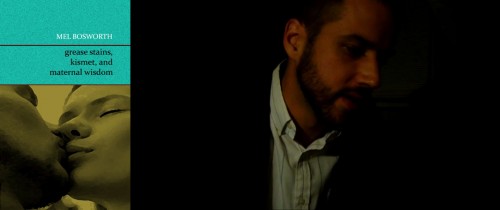A Conversation with Mel Bosworth
Mel Bosworth is the author of Freight (coming 2011 from Folded Word), and When the Cats Razzed the Chickens (Folded Word, 2009). His most recently published book is Grease Stains, Kismet and Maternal Wisdom (Aqueous Books/Brown Paper Press). He lives, breathes, writes, and works in western Massachusetts. Visit him at http://eddiesocko.blogspot.com/ and in the meantime, join us as we talk about his book, switching publishers and whether or not he is a dirty boy.
Interview: Stephen O’Connor
 I don’t know why you don’t already know and love Stephen O’Connor. He has never before been mentioned on this blog and for that I am trying to make amends. He’s published two collections of fiction and two works of nonfiction and the most recent is Here Comes Another Lesson, a collection of short stories that will just split you open in so many ways.
I don’t know why you don’t already know and love Stephen O’Connor. He has never before been mentioned on this blog and for that I am trying to make amends. He’s published two collections of fiction and two works of nonfiction and the most recent is Here Comes Another Lesson, a collection of short stories that will just split you open in so many ways.Here, go read his story “Ziggarut.” It was in The New Yorker but it’s completely unlike your typical New Yorker story– the main character is a Minotaur and, well, you should just read it. The interview below was conducted over email a week ago.
Elaine Kahn: Explain Yourself!
 I was just reading the new issue of La Petite Zine for fun and then there was this thing by Elaine Kahn called “Imp, Imp” and I was like, dang Mom how did that happen? Here’s the bit that got me:
I was just reading the new issue of La Petite Zine for fun and then there was this thing by Elaine Kahn called “Imp, Imp” and I was like, dang Mom how did that happen? Here’s the bit that got me:
. . .
in the deep flit of your eyes
boldly rolling, high as a fruit palletYour voice, your voicely voice
. . .
Kahn blends sense sense and poem sense effectively, which is perhaps a challenging thing to do quickly as she does here. Also note that she uses fewer periods than most poets who’ve habituated Western Massachusetts, which is cool with me. My guess is the poem was written longer first and then reduced, but who cares what I think, what I’m asking is ELAINE KAHN, EXPLAIN YOURSELF! (applause)
(See earlier Explain Yourself! posts and rules to the game show here, here, here and here.)
Notorious B.I.G’s lyrics arranged in haiku form

Bashful Basho
On lifestyle and finances:
escargot, my car go
one sixty, swiftly
wreck it buy a new one
On childhood:
super nintendo, sega genesis
when I was dead broke
man I couldn’t picture this
Good news: Tkacik’s back; Bad news: We’re fucked, says Tkacik

Moe Tkacik–the Moe who hasn’t joined the Tea Party–takes New Yorker staff writer Peter Boyer to the woodshed over his lying profile of the lunatic monstrosity that is The Family. Boyer’s article, an unlikely piece of hack inside-jobbery, basically exists to quell the rumors you may have heard about The Family–that they’re a secretive sect of influence-dealing theocrats, that they’re genocide-friendly, that they’ve got a kind of perpetual hard-on for dictators and fascists, that they hate women, that they are the force behind the Ugandan gay death penalty legislation, and that for one reason or another are probably actively plotting your death right now–all of which are pretty much true. I remember reading the Boyer piece whenever it came out (a week or two ago?) with a growing sense of cognitive dissonance and a slowly rising gorge. Everything about the piece is inexcusable, beginning with the existence of the organization being profiled. It’s heartening–but also induces further rage–to read such an incisive and thorough response, and Moe Tkacik is not only the best person for the job, she’s pretty much the only person who would bother to do it. Lucky us! Speaking of which, this piece appears on Das Krapital, Moe’s new gig as a daily blogger for the Washington City Paper. You should also check out her piece on “Why the Right Hates Freedom“, and basically be reading this blog every day. Expect to hear about it again. Also, check out Jeff Sharlet’s blog.
Chapbook Genius
I put a new face on Chapbook Genius and just released a collection of poems by Buck Downs. See the eBook here, where you can read it at Issuu, print it yourself, or get it for your eReader through Smashwords, all free.
Buck Downs is for real. I’ve seen him read a few times, laughing all the way. Seeing his poems on the page is a trick. They gloss brill and don’t wait but you go hallelujah back at them next Thursday all what.
Malone & Savoca Week (5): Kendra & Matthew Interview Each Other

(note: Kendra’s keyboard is broken so none of her text is capitalized. She would really like it if someone wanted to buy her a computer.)
Matthew: Can you briefly describe the timeline of events surrounding the entirety of Everything is Quiet, from inception to publishing, including the total amount of time that the poems span?
Kendra: okay. four years ago i moved to new york for a job. three years ago i got laid off from that job. three years ago i started drinking everyday and writing a lot because i wanted to just use up my savings instead of getting another job. two years ago, or maybe a little more i started submitting things to magazines. a year ago i compiled a manuscript. six months ago jeremy spencer accepted the manuscript and told me he was releasing it in six months so i could be released with you. i think the poems span about three years of my life. some go back a little farther. some don’t really have time frames at all.
most of your work is grounded in the quietness of domestic life, and the listless struggle of it all. do you ever intend to do this? how does your domestic partner(s) view your work?
Matthew: I’m pretty sure that I don’t intend it in the sense that it is something I really try to convey. What I’m usually trying to do is “get things right”. It’s a whole lot different from “make things right” which I think has more in common with the general idea of being deliberate, which I am not.
I think my domestic partner probably views my poetry as something good that it is “doing something” – that’s a phrase she has used before – but she also feels bored sometimes in reading about her own life, and then other times she enjoys it in the way we all do, and then in one final way, when she reads it she learns things that I was thinking and feeling that she was unaware of previously.
Malone & Savoca Week (3): 6 Q’s
Last week I sent both Kendra & Matthew six questions to be answered by both on the occasion of their first books both being published at the same time. Both books are very forthcoming in certain ways with personal information, inventing not really a new confessional, but an interiorizing of experience and relation, which made me wonder specifically about how the books as objects operate inside their lives. Here are the questions. Their answers are after the break.
1. How did this book begin as a manuscript? How did it find its place? How did it end?
2. Are you scared? What are you scared of?
3. Do you ever think about what you are going to write about something as the something is happening?
4. Do you see yourself inside your book, or does it seem like other people? Do you feel you have modes?
5. How does a book correspond with the act of love, as an object?
6. What is something you have hid?
Well played, Tao.

Included in this issue is an article about Tao Lin by Tao Lin. I’ll update this post with a link when it is live. Or, if you’re the sort of person who might want to do something like this, you could just go ahead to The Stranger’s website and hit refresh for the next few hours.
UPDATE:

